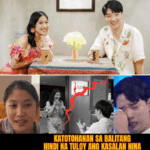Arjun walked into the college library, his backpack slung carelessly over one shoulder. The air smelled faintly of old paper and dust, comforting yet oddly mysterious. He wandered past the rows of shelves, absent-minded, until a glint of light caught his eye from a corner.
Curious, he moved closer and found a small, dusty notebook tucked behind tall stacks of forgotten textbooks. Its cover was plain, worn, and the spine creased from years of use. He pulled it out and blew off the thick layer of dust, revealing faint words etched in faded ink.
He flipped open the notebook. The pages were lined, filled with sketches, short writings, and fragments of sentences. It seemed like someone had abandoned it long ago. He shrugged and slipped it into his bag, thinking it might serve as a journal for his own notes.
That evening, in his small dorm room, Arjun decided to write in it. “I will meet Raj tomorrow at 10 a.m. near the campus café,” he scribbled casually. The words felt ordinary, meaningless. Yet when he returned to the café the next day, Raj was already waiting, exactly as he had written.
Arjun’s heart raced. Could it be coincidence? He tried another entry: “I will find a coin on the staircase today.” Half-jokingly, he wrote it. That afternoon, on the exact steps he mentioned, a shiny coin gleamed beneath the sunlight.
The realization hit him slowly. The notebook was predicting—or perhaps creating—the future. At first, he felt exhilarated, writing small, harmless things. But the power felt dangerous, like holding a flame in his hands.
He experimented carefully. Winning a small campus contest, helping a classmate avoid embarrassment, stopping a minor accident. Every word mattered, and each event mirrored his writing in uncanny detail.
Soon, Arjun became aware of the responsibility. Every phrase had consequences. A careless entry could hurt someone unintentionally. He began weighing each word, thinking deeply before putting pen to paper.
His friends noticed changes in him. He became quieter, more contemplative, often scribbling in the notebook during lectures. Sometimes he would smile mysteriously when things unfolded exactly as predicted.
One day, he wrote a larger entry: “I will prevent the fire in the chemistry lab tomorrow.” He felt a shiver as he wrote. The next morning, an experiment did catch fire, but because of his intervention, no one was hurt. The notebook had guided him toward action.
Arjun began to understand the notebook was more than prediction. It was a reflection of intentions, of choices, and morality. He realized that it could reveal desires he did not fully recognize in himself, and fears he had yet to confront.
The lines between planning, observing, and acting became blurred. He was careful, sometimes too cautious, afraid that even a thoughtless word could ripple into unforeseen events.
He started writing in detail about people he cared for, shaping outcomes with precision. Yet he learned that even good intentions could backfire. He once predicted a friend would arrive on time, but subtle changes caused a chain reaction, leaving someone else upset unexpectedly.
The notebook tested him. He had to think several steps ahead, considering consequences he could not immediately see. It taught him empathy and patience, forcing him to consider not just what he wanted, but what others needed.
Arjun found himself waking early to write, reviewing past entries to avoid contradictions. He kept track of the cause and effect in a small chart, treating the notebook as both journal and guide.
Occasionally, he wrote about events for which he could not yet see outcomes. Waiting for them taught him trust in the process and acceptance of uncertainty. He realized that control was limited, even with the notebook in hand.
Through the semester, his relationships changed. Friends were drawn to him, sometimes unknowingly guided by the notebook’s subtle influence. He grew more compassionate, understanding the weight of decisions on everyone around him.
The final weeks of college approached. Arjun wrote entries to prepare for exams, friendships, and family visits. He realized that the notebook was not merely a magical tool—it was a mirror of his own responsibility and growth.
He started sharing small lessons from his entries with friends, teaching them indirectly about planning, foresight, and moral choices, without revealing the full mystery of the notebook.
One evening, he wrote a long entry: “I will graduate with understanding, with lessons learned, ready for the world beyond college.” He closed the notebook and stared at it, realizing that the true power was in the thoughtfulness he had cultivated, not the notebook itself.
Arjun returned the notebook to the library corner where he had found it. Someone else might discover it one day, but he knew that its magic was only activated through intention, ethics, and awareness.
As he walked across the campus green one last time, the wind ruffled his hair, the sunlight warm on his face. He felt ready for life, understanding that every choice mattered, and every word could shape the future.
The notebook had been a teacher, revealing the delicate balance between power and responsibility, between desire and consequence. He had learned that the future could be guided, but never entirely controlled.
Arjun smiled. The ordinary world around him felt extraordinary now. Every interaction, every moment, held potential, and he knew he could face it with clarity and care.
Even as he left the college, he carried the lessons with him: mindfulness, empathy, and the understanding that the smallest action can echo far beyond what we see.
The notebook rested on the library shelf, dusty and silent, waiting for the next person to write, to learn, and to discover the balance of influence and responsibility.
News
She Found a Forgotten Key in Her Grandmother’s House That Opened a Door to Secrets No One Wanted Revealed
Anika stepped off the bus and took a deep breath, inhaling the familiar scent of earth and old wood. The…
Shilpa Shetty and Raj Kundra Face Legal Trouble: Lookout Notice Issued in ₹60 Crore Case, Jail Risk Looms
Bollywood actress Shilpa Shetty and her husband Raj Kundra are facing one of the most high-profile legal challenges in recent…
Popular TV Actor Arjun Bijlani Opens Up About Betrayal, Financial Struggles, and Life After Losing His Father
Arjun Bijlani, one of India’s most beloved television actors, is known for his charming smile, dashing looks, and a screen…
Radhika Merchant Announces Exciting News: A Baby to Join the Ambani Family, Photos Reveal the Secret
The Ambani family, one of India’s most iconic and closely watched households, is all set to welcome a new member,…
TV Actress Krystle D’Souza Reveals Terrifying Molestation Incident in Mumbai Local Train at Age 15
Rubina Dilaik, a beloved television actress, has long captivated audiences with her strong on-screen presence. From winning reality shows to…
She Discovered A Forgotten Journal Hidden In Her Father’s Old Desk That Changed Everything She Believed About Family
Priya stood at the threshold of the old house, suitcase in hand, staring at the cracked paint of the wooden…
End of content
No more pages to load












